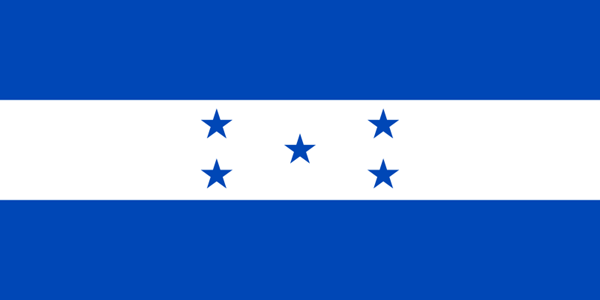Login form
Customs of Honduras
Marriage and Family
 Common-law marriages are generally accepted, and many people never officially marry. Single-parent families are common. Many young, single mothers live with their parents.
Common-law marriages are generally accepted, and many people never officially marry. Single-parent families are common. Many young, single mothers live with their parents.
Members of the extended family, including grandparents and other relatives, often occupy the same household. The father is respected as the head of the household, but the mother often has the greatest responsibility and influence in everyday family life. Machismo is a common attitude in
Small adobe houses with dirt floors are common in rural areas. People in remote areas lack electricity and other modern conveniences. In cities housing ranges widely from the simple to the luxurious.
Eating
Beans, maize, tortillas, and rice are the staple foods. Bananas, pineapples, mangoes, citrus fruit, coconuts, melons, avocados, potatoes, and yams are the most common fruits and vegetables. Special dishes include tapado (a stew of beef, vegetables, and coconut milk), mondongo (tripe and beef knuckles), nacatamales (pork tamales), and torrejas (similar to French toast and served at Christmas). Topogios or charramuscas (frozen fruit juice in a plastic bag) are popular during the summer months. Soda is popular, and coffee is usually served with the main meal of the day. Many restaurants in major cities serve pizza, hamburgers, and other North American dishes.
Breakfast is served between 6 and 8:30 am, and the main meal usually begins around noon. A lighter evening meal is eaten sometime between 6 and 8 pm. Meals are leisurely. Both hands (but not elbows) are kept above the table. People customarily use the fork in the right hand and knife in the left, although people in rural areas might also use pieces of maize tortillas instead of utensils.
Socializing
A handshake is an appropriate greeting for men and urban women. Middle- and upper-class women may kiss male and female friends on the cheek. In rural areas, women may greet one another by placing one hand on the other’s upper arm. The abrazo is a warm embrace shared by close friends and relatives. When meeting someone for the first time, a person’s official title or Señor, Señora, or Señorita (“Mr.,” “Mrs.,” or “Miss”) is used. People also use usted (the formal version of “you”) when meeting someone for the first time, rather than the more familiar form, tú. With small groups it is usual to greet and say good-bye to everyone individually. When passing someone in the street, one says “Adiós”, which in other circumstances means “Good-bye.” It is usual to say Buen provecho (“Enjoy your meal”) before a meal, or even when passing a table of diners in a restaurant.
Visiting is a common pastime on Saturday afternoons and Sundays, and visits are often unannounced. Guests are often offered juice, soda, or coffee and sometimes sweets. Even the poorest of people will share what they have to make a guest feel welcome. If a guest does not feel like eating, the host may wrap up a little food to send home with the visitor. When invited to visit someone’s home, punctuality is not considered important; people often arrive well after the stated time.
Recreation
Fútbol, or soccer, is the national sport. Young boys play the game almost any time and anywhere, and there is professional competition as well. In recent years, more girls have become involved in fútbol, but they are more likely to play basketball. Wealthy Hondurans enjoy bicycle races, baseball, golf, tennis, and swimming. In villages on the north coast, men like to play dominoes after they return home from a day’s work of fishing. In the cities, people enjoy watching television. Throughout the country, socializing with family or friends is one of the main ways people spend their leisure time.
Holidays and Celebrations
Public holidays in
During the Easter Holy Week (Semana Santa), businesses close from Wednesday to the end of the week and people go to the beaches. On the Day of the Child (10 September), which is not an official holiday, children receive sweets and gifts at school, and congratulations from adults who pass them on the street. Wealthy Hondurans may also have special celebrations at home. Villages and towns have special days when they celebrate their patron saints. There are also regional fiestas such as Carnaval in La Ceiba each May.
Girls have their formal initiation into social life, called La Fiesta Rosa, at age 15, when elaborate parties are held to recognize their coming of age.
Source: Encarta Interactive World Atlas

